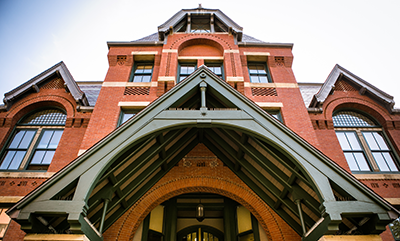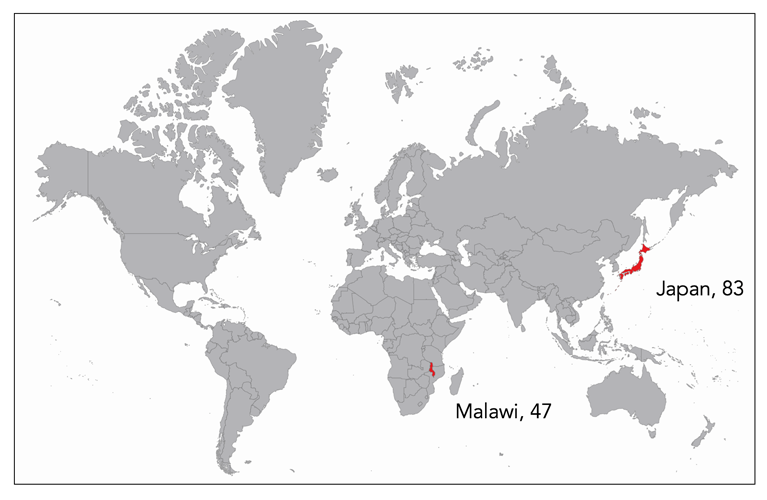On Luck.
 We are, in our scholarship, largely in the business of population health science, an enterprise that is oriented towards a “study of the conditions that shape distributions of health within and across populations, and of the mechanisms through which these conditions manifest as the health of individuals.” Our entire program of research and scholarship is focused on understanding what causes health in populations, with the goal of finding answers that can be useful guides to action. Implicit in this quest is the assumption that we can indeed understand, that we can be astute enough to identify causes, so that we may do something about them. This deterministic approach leads us, at times, to some cognitive cul-de-sacs. I have previously commented on some of these challenges, and discussed analytic approaches that can help us overcome the temptation of easy determinism. Today, however, I would like to comment on an aspect of population health that is far too often hidden: luck, or, if one prefers to put it a bit more traditionally, chance, randomness. Indeed, in this uncertain political moment, the subject of luck becomes, I think, all the more important for us to understand, if we are to thrive in our new, ever-unfolding context. I suggest that while we frequently take luck for granted, it is nevertheless central to the health of populations, and needs to be part of our empirical and moral calculus as we attempt to improve population health.
We are, in our scholarship, largely in the business of population health science, an enterprise that is oriented towards a “study of the conditions that shape distributions of health within and across populations, and of the mechanisms through which these conditions manifest as the health of individuals.” Our entire program of research and scholarship is focused on understanding what causes health in populations, with the goal of finding answers that can be useful guides to action. Implicit in this quest is the assumption that we can indeed understand, that we can be astute enough to identify causes, so that we may do something about them. This deterministic approach leads us, at times, to some cognitive cul-de-sacs. I have previously commented on some of these challenges, and discussed analytic approaches that can help us overcome the temptation of easy determinism. Today, however, I would like to comment on an aspect of population health that is far too often hidden: luck, or, if one prefers to put it a bit more traditionally, chance, randomness. Indeed, in this uncertain political moment, the subject of luck becomes, I think, all the more important for us to understand, if we are to thrive in our new, ever-unfolding context. I suggest that while we frequently take luck for granted, it is nevertheless central to the health of populations, and needs to be part of our empirical and moral calculus as we attempt to improve population health.
When it comes to shaping health, luck is a factor from the moment of birth. We know, for example, that in the United Sates the socioeconomic group we happen to be born into remains an enormously consequential determinant of our well-being. The more economically advantaged we are, the longer we are likely to live, with the richest men in the country living a full 15 years longer than the poorest, and the richest women living 10 years longer than the poorest (Figure 1).

Figure 1. Life Expectancy vs. Income in the United States
How can we reduce disparities in health? The Health Inequality Project Web site. https://healthinequality.org Accessed August 16, 2016.
This of course does not even begin to consider luck within a global context, wherein the country one happens to be born in is singularly determinative of one’s health throughout life. For example, life expectancy in Japan is 83, while life expectancy in Malawi is 47 (Figure 2).

We all well understand this association between income, wealth, and health. What we frequently do not understand, or at least tend to forget, is that this robust, hard-to-overcome determinant of health is closely linked to luck; with luck deciding, as it does, whether we are born rich or born poor. While the American dream is built on the myth of the capacity we all have to transcend the circumstances of our birth—the Horatio Alger story of self-made success—the data suggest that this is not so. As represented in Figure 3 below, a child born to parents in a lower income quintile is more than 10 times likelier to remain in that quintile in adulthood. A child born to parents in a higher income quintile is five times likelier to maintain that privileged economic status in adulthood.

Thirteen Economic Facts about Social Mobility and the Role of Education. The Brookings Institution Web site. https://www.brookings.edu/research/thirteen-economic-facts-about-social-mobility-and-the-role-of-education/ Accessed August 16, 2016.
In other words, luck determines whether we are born rich or poor, and we generally stay much as we were born. Insofar, then, as income and wealth are strong determinants of well-being throughout life, it is luck that shapes the trajectory of our health.
How do we grapple with the role of luck in public health? A moral/philosophical perspective might be helpful here. The extent to which certain populations are more vulnerable to bad luck than others is a preoccupation of luck egalitarianism; a philosophical viewpoint concerned with the distribution of “brute luck and option luck.” The former characterizes the influence of what can only be described as fate—i.e. the military coup that leads to the sudden withdrawal of government funding for a particular health intervention. The latter characterizes the risk inherent in a deliberate course of action a person or group decides upon—i.e. the initial choice to establish a health intervention in an unstable part of the world. The distinction between option luck and brute luck can play an important role in public health thinking, and in particular might have resonance as we tackle issues such as the role of paternalism that aims to shape context and our efforts to make circumstances that might now be considered acceptable, unacceptable.
Consider the challenge of obesity. The present paradigm suggests two ways a population can become obese: through the influence of brute luck and the influence of option luck. Where some may observe obesity in low-resource neighborhoods and ascribe it to laziness or bad choices, we are able to perceive the underlying structural determinants, the brute luck, conspiring to make healthy eating difficult in these areas. This is not to say, of course, that choice does not factor into the spread of obesity. Consumers choose what they buy and what they eat, even when their choices are limited. It follows that the resulting health outcomes would thus be a consequence of option luck. But when food choices are limited, and nutritious food scarce, the degree to which true option luck is a factor is slight indeed. If a store only carries processed foods and sugary drinks, and that store is the only food source a less-advantaged family can conveniently access, then the brute luck of birth and income remains a major factor in determining that family’s diet.
In some ways, the task of those looking to improve the world is to overcome the influence of brute luck. This ties into our focus on social justice, and the even distribution of health within and across populations. When one group, or multiple groups, within a society are burdened with a near permanent, structured, often intergenerational bad luck—while the population as a whole enjoys fairer prospects—then that society is not just, and the work of public health is not done. Public health should therefore take an approach to redistributive justice that recognizes that health should not be unequally distributed, and that deals with the conditions, many of them imposed by luck, that drive inequality within populations. To do so, we must mitigate brute luck’s effect on health through interventions that target the social, economic, and environmental conditions that create hazards like obesity. By refusing to leave health up to chance, we strengthen the significance of option luck in decision-making, giving individuals more latitude to choose the trajectory of their own well-being and “make their own luck.”
I hope everyone has a terrific week. Until next week.
Warm regards,
Sandro
Sandro Galea, MD, DrPH
Dean and Robert A Knox Professor, Boston University School of Public Health
Twitter: @sandrogalea
Acknowledgement: I am grateful to Eric DelGizzo for his contribution to this Dean’s Note.
Previous Dean’s Notes are archived at: https://www.bu.edu/sph/tag/deans-note/
Comments & Discussion
Boston University moderates comments to facilitate an informed, substantive, civil conversation. Abusive, profane, self-promotional, misleading, incoherent or off-topic comments will be rejected. Moderators are staffed during regular business hours (EST) and can only accept comments written in English. Statistics or facts must include a citation or a link to the citation.